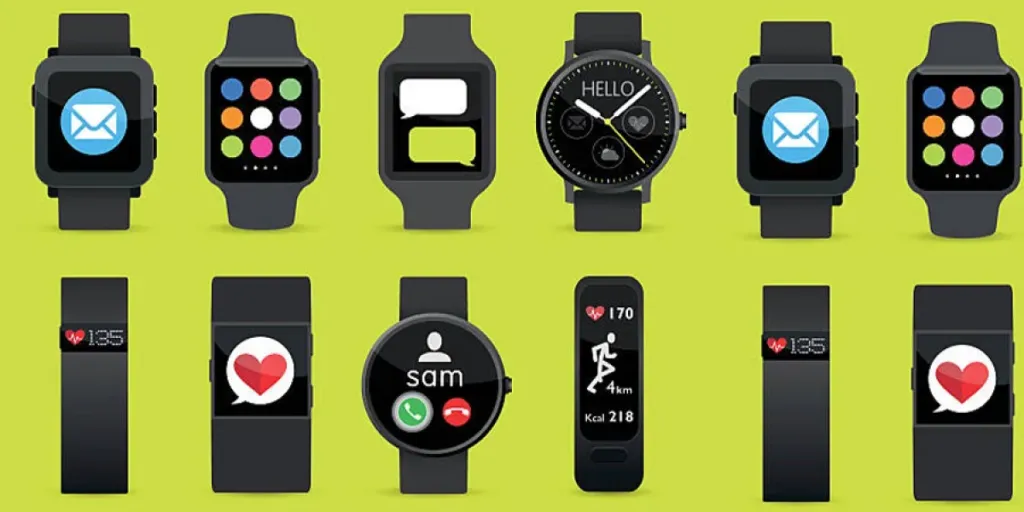The debate between wired and wireless mice has existed for ages. In the past, wired mice were superior with their hassle-free, reliable, and durable performance.
Although wireless mice didn’t quite match up back then, the technology has evolved, closing the gap between them and their wired counterparts. Nevertheless, both technologies have their fans and critics.
If businesses can’t decide which option to offer their consumers, especially for gaming, then fear not. This wired vs. wireless mouse guide will ensure you understand the two options so that you can confidently make the better investment for your buyers!
Table of Contents
How big is the gaming mouse market in 2023?
What are wired and wireless mice?
Wired vs. wireless mice: what are the significant differences?
Which one is the better investment?
Final verdict
How big is the gaming mouse market in 2023?

In 2022, experts valued the gaming mouse market at US$ 1.76 billion. They expect the market to reach US$ 2.55 billion, expanding at a 7.2% compound annual growth rate from 2023 to 2032.
The gaming mouse market has witnessed significant growth recently, driven by the surging popularity of online gaming and esports. With gaming becoming a mainstream form of entertainment, consumers continuously search for devices to gain a competitive edge.
As a result, manufacturers have developed various gaming mice catering to different player preferences and game genres. Regionally, North America is a significant contributor to the global gaming mice market, while Europe follows closely behind.
Asia Pacific is the dominant region in the gaming industry, with countries like Japan, South Korea, and China leading with a massive gaming culture and increased demand for gaming peripherals.
What are wired and wireless mice?

Wired gaming mice are the classic choice. Typically, they have a USB cable that connects directly to the consumer’s PC for a more reliable connection. Plus, wired mice also offer consistent performance because of their design.
In contrast, wireless gaming mice are the kings of convenience. Usually, they’re small and lighter, making them ideal for gamers who need a portable solution for on-the-go gaming.
Also, most wireless mice include a dongle or USB receiver for consumers to connect to their PCs. However, short battery life is one of their drawbacks, meaning gamers may need to change or charge the batteries often.
Wired vs. wireless mice: what are the significant differences?
Speed and performance

Regarding speed and performance, wired mice reign supreme. They offer faster response times and less delay, allowing gamers to enjoy smooth and precise cursor movements. Plus, this is a super benefit for consumers interested in competitive FPS titles, where faster response times can grant significant advantages.
However, wireless mice are catching up quickly. Nowadays, the response time and latency gap between wired and wireless mice is almost negligible. But this only applies to 2.4GHz wireless gaming mice, not the Bluetooth variants.
But why are the Bluetooth options lagging behind? While 2.4GHZ wireless mice offer up to 1000Hz polling rates, the Bluetooth variants usually top out at 125Hz. The polling rate refers to the communication speed between the mouse and the PC, which indicates the mouse’s position. So, a higher polling rate translates to a faster and more responsive mouse. And this is where some wireless mice don’t match up.
That said, despite all the negative press, many competitive gamers prefer wireless mice today, proving they’ve improved over the years.
Reliability
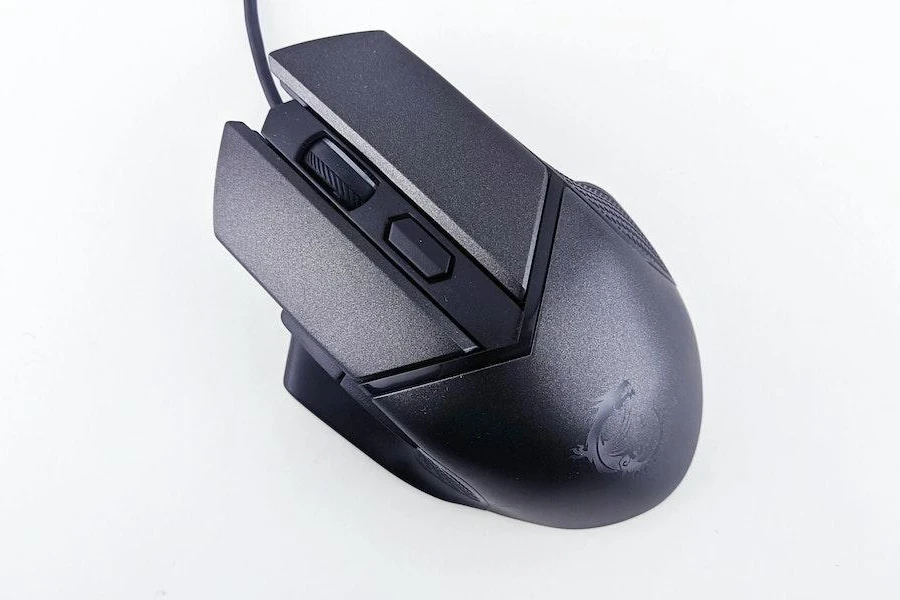
The wired mouse’s plug-and-play design remains the top choice regarding reliability. They connect directly with the consumer’s computer, resulting in zero connection losses and super fast information transfer.
In contrast, wireless gaming mice are susceptible to interference, which means that any obstacles between the receiver and the mouse can lead to delays or lags due to the weakened signal.
Unfortunately, it doesn’t end there. Consumers with multiple wireless peripherals connected to their PC might also encounter signal disruptions. The issue is worse with Bluetooth mice—-they have a higher latency than their 2.4GHz counterparts. This could be a big deal breaker for consumers who take esports and FPS games seriously.
Convenience
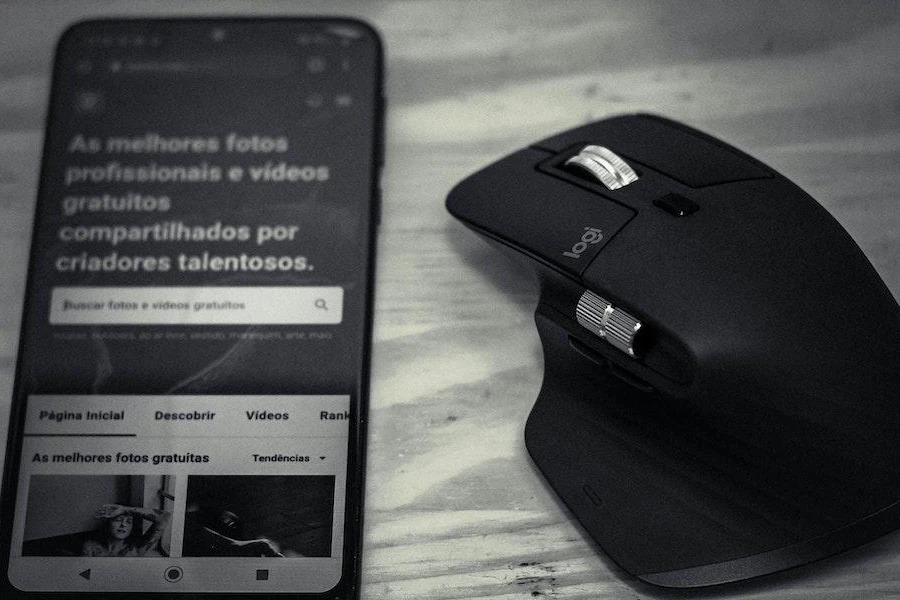
Wired mice offer more in terms of performance, but their wireless counterparts beat them regarding convenience. They provide a clutter-free and neater desk setup, allowing consumers more movement freedom without the cable hassle.
However, it’s not the same for a wired mouse. Unfortunately, wired mice can suffer from cable drag or snagging, a pesky problem for gamers. Cables tangle and twist easily, creating a mess resembling a bag of snakes.
When cables tangle up like that, it creates an annoying resistance, forcing consumers to tug on the mouse to move it. While they can opt for a mouse bungee to keep the cable arranged, it’ll add extra clutter to the gamer’s desk and slightly reduce the clean look of their setup.
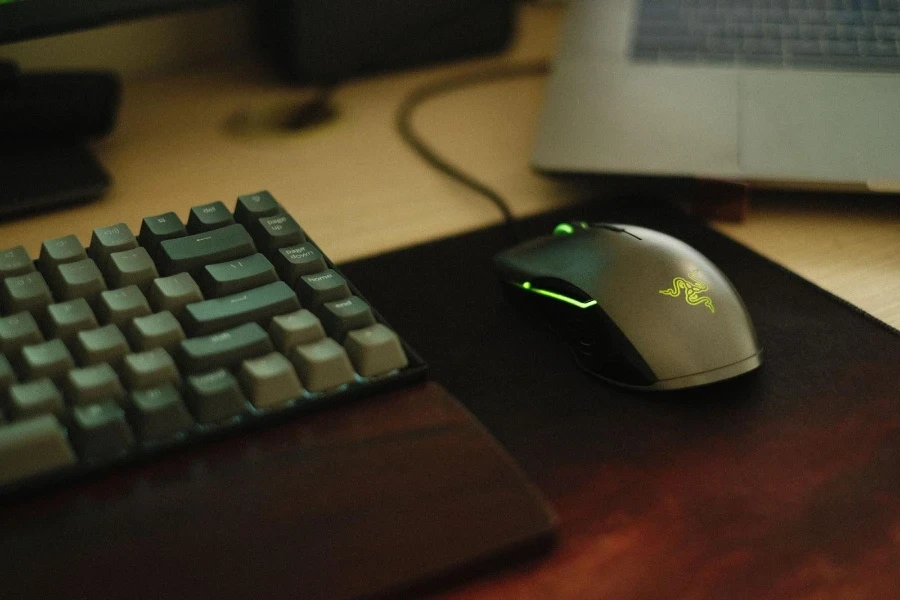
In addition, wireless mice offer a long range of up to 30 meters, meaning users can use them across the room for some couch gaming. In contrast, a wired mouse keeps consumers tethered to their desks with limited mobility.
Wireless mice are also incredibly portable and easier to carry in a bag since they don’t have a cable problem. But just because they’re convenient doesn’t mean going completely wireless doesn’t have its downsides.
One factor affecting the wireless mouse’s convenience is batteries. Since wireless mice depend on batteries, consumers must swap or charge them constantly—-which can be almost as annoying as cable drag or snagging.
Plus, batteries make wireless gaming mice slightly heavier, making them unattractive to consumers who prioritize lighter devices. Although super lightweight wireless mice are available today, they’re usually luxury-grade and expensive.
Aesthetics

Wired and wireless gaming mice can be very similar aesthetically. Manufacturers often design both types to be ergonomic and comfortable to hold. And they may feature eye-catching details, like RGB lighting, textured grips, and other gamer-friendly features.
However, spotting a few aesthetic differences between wireless and wired gaming mice is easy. For instance, wired mice can come with braided or RGB cables to make them more appealing. On the other hand, wireless mice provide a cleaner and more minimalist look.
Some wireless gaming mice also feature unique designs that are impossible with wired variants. For example, some wireless gaming mice have built-in charging docks with extra aesthetic benefits, allowing consumers to charge their devices without ruining their setup’s beauty with wires.
Battery
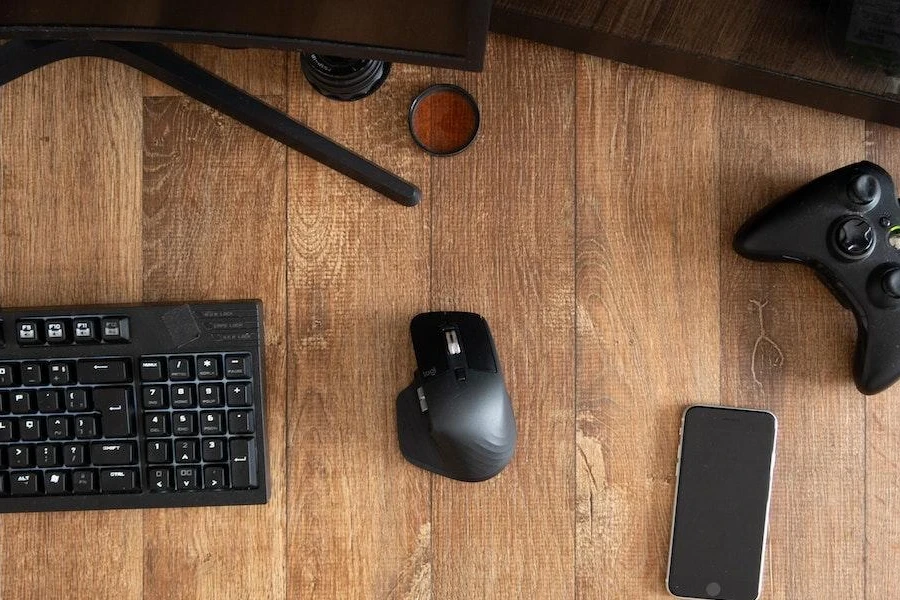
It may sound obvious, but it’s worth noting that wired mice don’t need batteries since they draw power from their cables. Wireless variants, as mentioned earlier, need batteries to work without wires.
Sometimes, wireless mice come with designs for AA or AAA batteries—-but other times, they offer rechargeable capabilities like phones or laptops.
Here’s a table showcasing the average duration of each battery type before they need changing or recharging.
| Battery type | Average usage duration |
| AA batteries | 100 to 500 hours |
| AAA batteries | 50 to 250 hours |
| Rechargeable batteries | 40 to 160 hours |
Note: The actual duration depends on the mice’s brand, features, and batteries.
While battery life on gaming mice may still be a problem for many, various solutions are popping up to improve the technology. Some wireless gaming mice have low battery indicators to alert users when they need charging.
Which one is the better investment?

So, which one should businesses stock up on? The answer is it depends on the consumers. Wired gaming mice are ideal for gamers because of their faster and more responsive designs.
But most consumers prefer convenience, pushing them towards wireless gaming mice. Besides, the differences in performance are not as glaring as in the early 2010s.
Popularity is another thing to consider before investing in gaming mice—-and wireless variants seem to be gaining the upper hand. According to Google Ads, branded variants attract 301000 average monthly searches and have experienced a steady search volume since the beginning of 2023.
Generic wireless gaming mice also perform excellently, generating 246000 average monthly searches. Although their search volume dropped by 10% in July (201000 searches), it quickly rebounded to 246000 the following month and has remained consistent in September.
On the other hand, wired gaming mice offer a lower but impressive performance, indicating they’re not as popular as their wireless cousins. Google Ads data reveals that branded wired mice average 90500 monthly searches, while generic ones command 22200 inquiries.
In addition, generic wired mice have maintained a consistent search volume for a year, indicating a loyal but niche audience for the device.
So, businesses seeking to follow the latest gaming mice trend should opt for wireless ones. But wired mice are the perfect choice if they want a more niche audience.
Final verdict
Wired and wireless gaming mice have been battling for decades, both aiming for the top spot in the PC gaming industry. While wired mice have dominated for years, wireless variants have caught up and even surpassed them in popularity.
Although wireless mice (valued at US$ 16.6 billion in 2021) will soon take over the market completely, wired gaming mice are still hot items today. Regardless, the wired vs. wireless mouse debate depends on what consumers search for in 2023.

